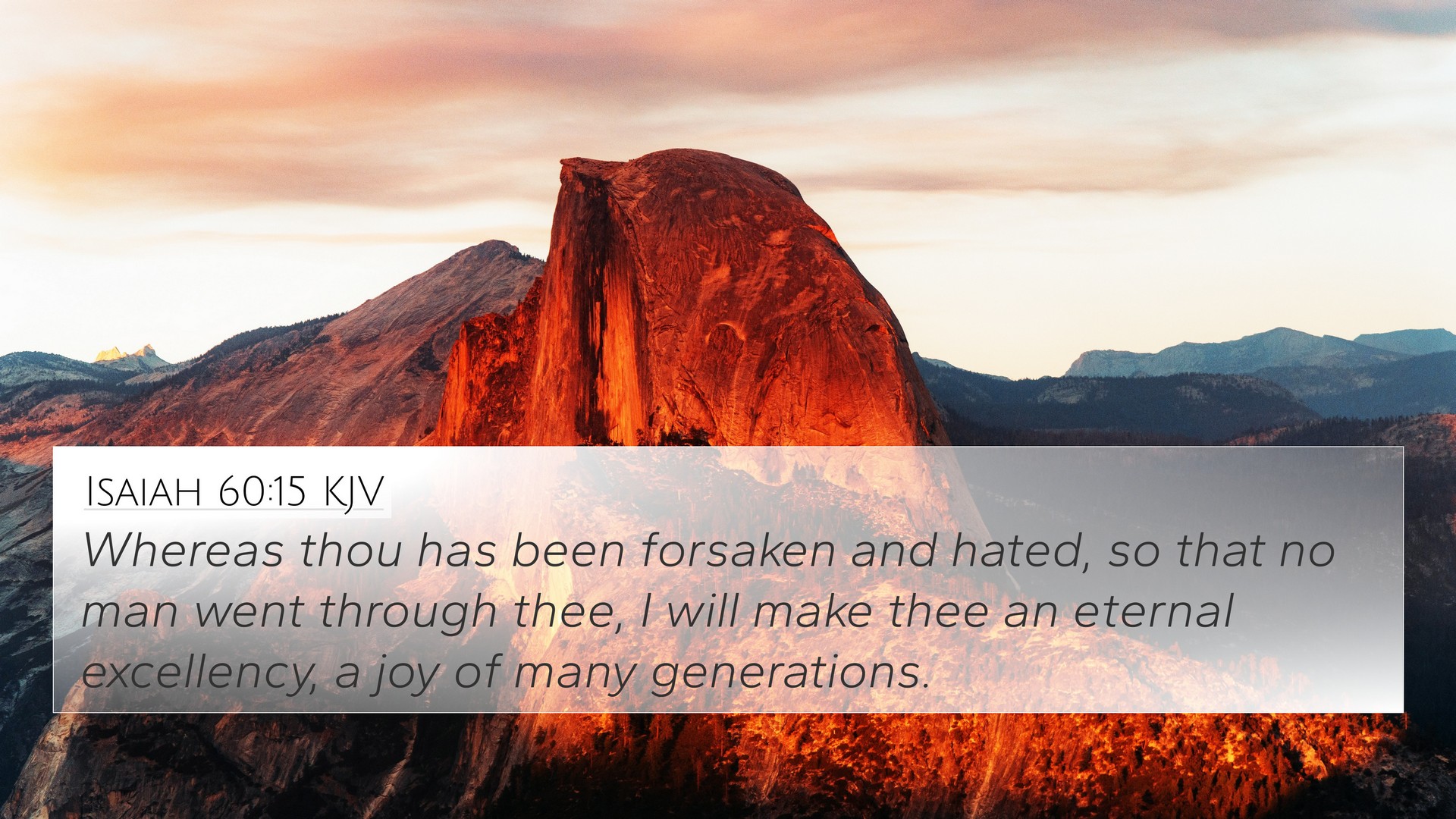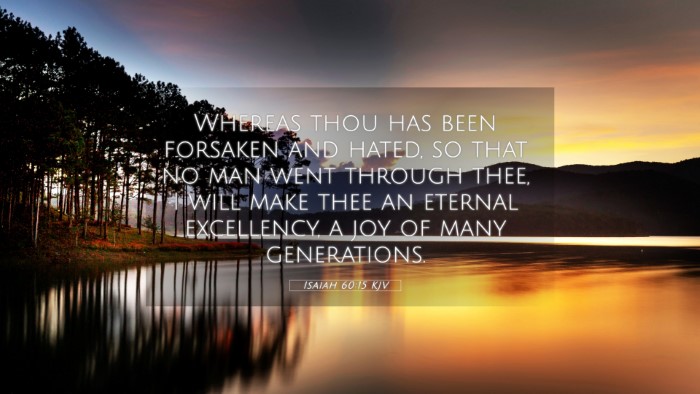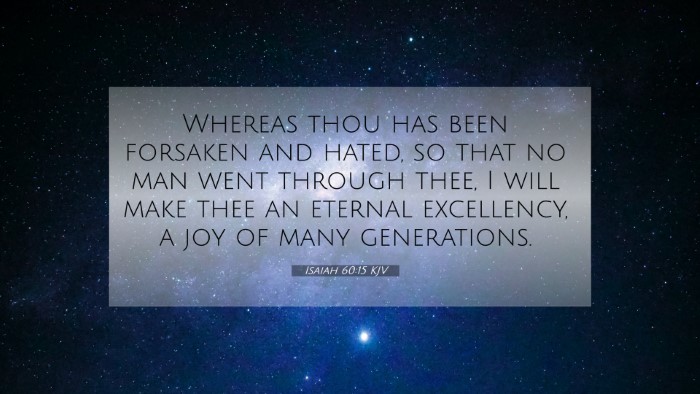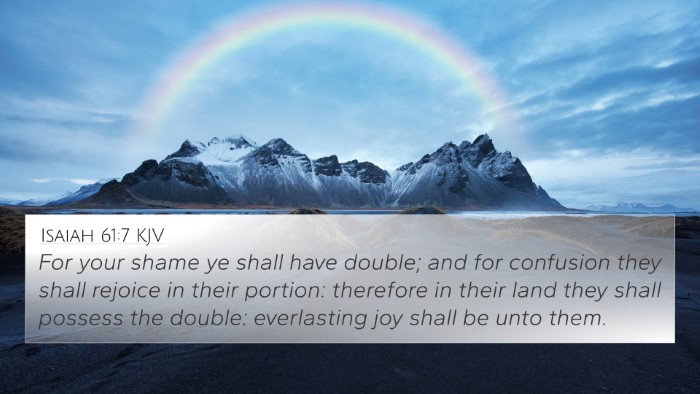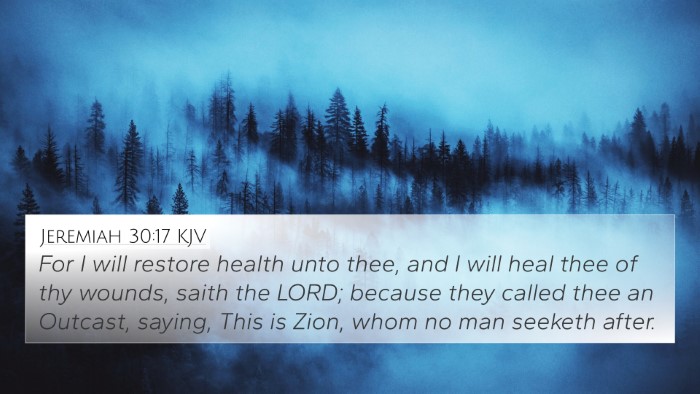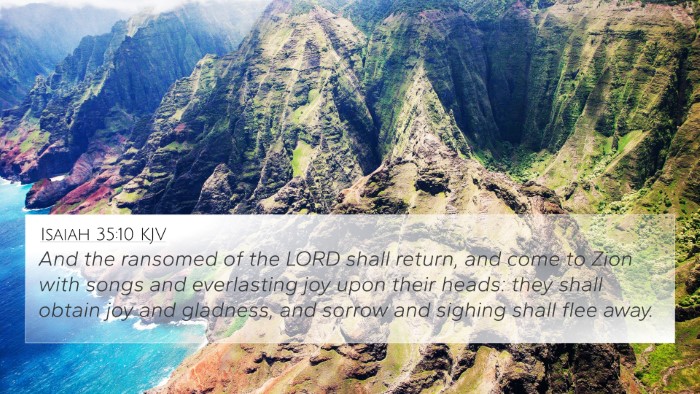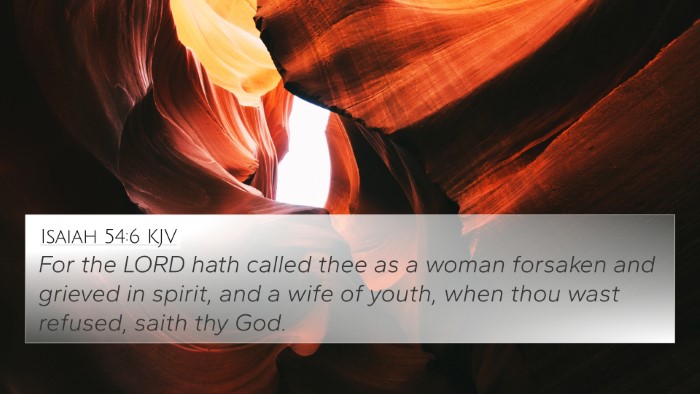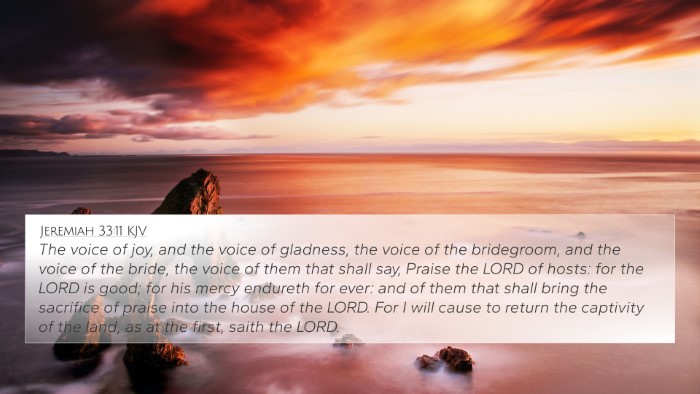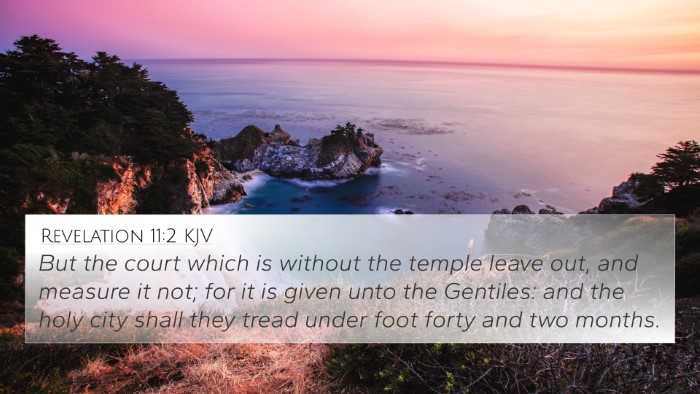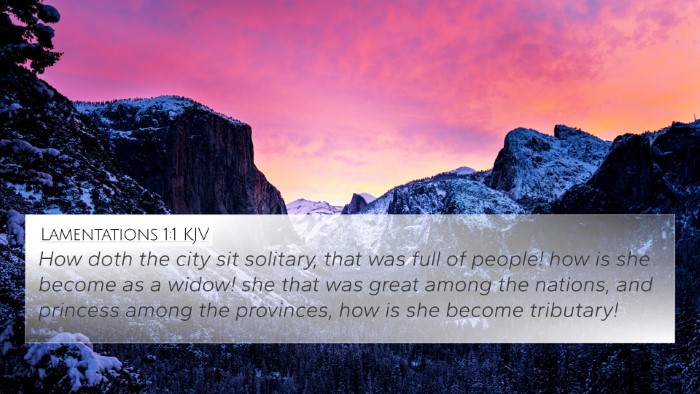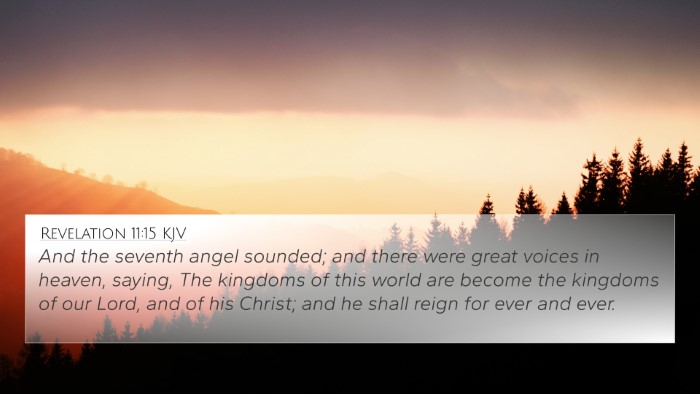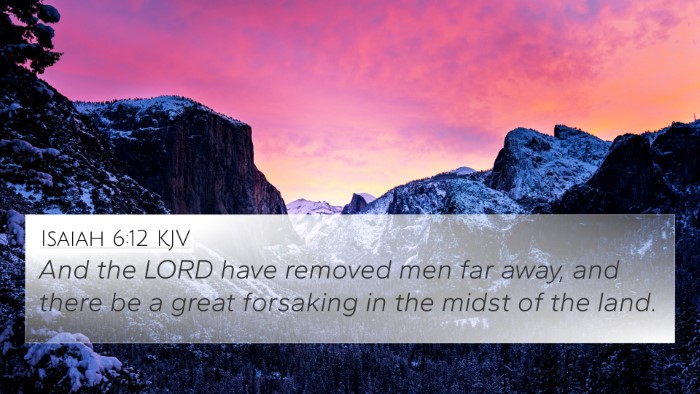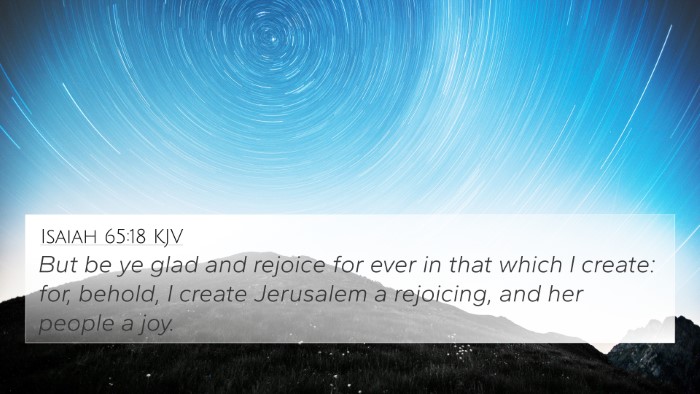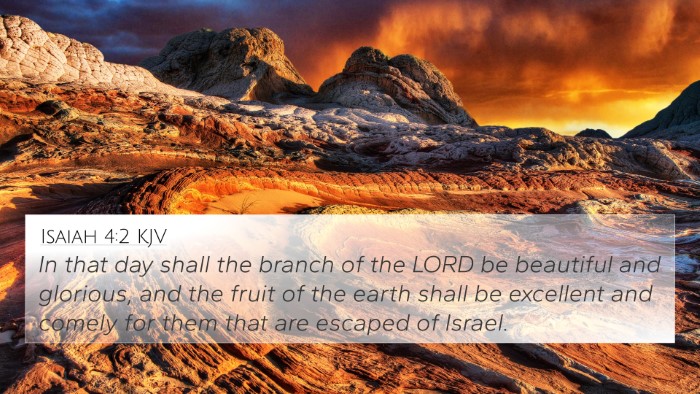Understanding Isaiah 60:15
The verse Isaiah 60:15 reads:
"Whereas thou hast been forsaken and hated, so that no man went through thee, I will make thee an eternal excellency, a joy of many generations."
This verse reflects a profound transformation from desolation to glory and restoration. Through insights from various public domain commentaries, such as those by Matthew Henry, Albert Barnes, and Adam Clarke, we can delve into the enriched meanings and connections with other Bible verses.
Summary of Insights
Isaiah 60:15 emphasizes God's promise to restore Israel after a time of abandonment and scorn. Here’s a breakdown of the main ideas from the commentaries:
-
Matthew Henry: He highlights the stark contrast between Israel's past shame and future honor. Henry notes that the desolation refers to the destruction and captivity Israel faced but assures that God will rebuild and exalt the nation, making it a place of joy and excellence.
-
Albert Barnes: Barnes explains the significance of the phrase "eternal excellency," communicating a sense of permanence and greatness that God would bestow upon His people. He draws attention to the long-term implications of this restoration, indicating a generational impact.
-
Adam Clarke: Clarke provides an analysis on the deeper spiritual implications, explaining that the passage speaks of the spiritual revival and the coming glory of the Church, which applies to both historical and eschatological contexts.
Cross-References to Isaiah 60:15
This verse features multiple connections within the Bible, enabling a more comprehensive understanding of its themes. Below are some cross-referenced biblical texts that provide additional context and support the interpretations of Isaiah 60:15:
-
Revelation 21:2-4: Discusses the new Jerusalem coming down from heaven, symbolizing God’s restoration of His people.
-
Jeremiah 30:17: Contains promises of healing and restoration to Israel after their suffering.
-
Ezekiel 36:33-36: The restoration of cities and desolate places becomes a theme of renewal that parallels Isaiah's message.
-
Zechariah 2:5: Mentions how God will be a wall of fire around Jerusalem, symbolizing protection and glory.
-
Luke 4:18-19: Jesus quotes Isaiah to indicate His mission of bringing good news to the afflicted and proclaiming liberty.
-
Romans 11:28-29: Paul speaks on Israel's future restoration, paralleling the themes of exaltation in Isaiah.
-
Psalms 126:1-3: Reflects on the joy of restoration and the great things God has done for His people.
-
Isaiah 32:1-2: Prophesies a king ruling in righteousness, highlighting future security and peace.
-
Isaiah 61:7: Promises a double portion instead of shame, reinforcing the message of divine reversal.
-
2 Corinthians 1:20: Highlights that all of God’s promises find their fulfillment in Christ, linking the hope found in Isaiah to the New Testament.
Thematic Connections
Isaiah 60:15 creates thematic connections that echo through the scriptures.
- Restoration and Renewal: Many biblical texts highlight God’s ability to restore those who are lost or broken.
- Excellence and Glory: The concept of divine excellence is prevalent, representing God’s perfect attributes manifested through His people.
- Joy across Generations: The idea of generational blessings emphasizes the long-lasting impact of God’s providence and mercy.
Using Cross-References for Deeper Understanding
Engaging with cross-references is essential for a comprehensive Bible study. Here are some tools and methods to enhance your exploration:
- Bible Concordance: Use this invaluable resource to find words and phrases related to your verse.
- Bible Cross-Reference Guide: This tool helps navigate scriptures that connect thematically.
- Cross-Reference Bible Study: An approach focused on exploring how verses interrelate.
- Identifying Connections: Understand how verses from different books converse with each other through themes of restoration and divine justice.
Conclusion
Isaiah 60:15 is a powerful verse that assures believers of God's unchanging promise to restore and exalt His people despite their past trials and tribulations. By using comprehensive cross-referencing and understanding the inter-Biblical dialogue, we can deepen our appreciation for this verse and its implications for our lives today.
